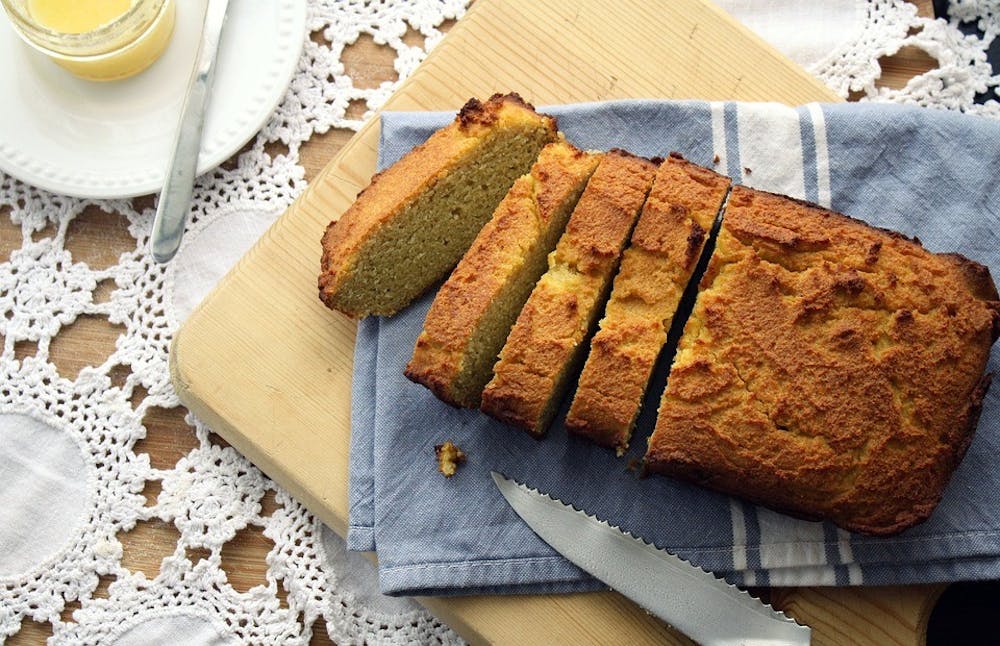Everyone and their grandmother either is gluten–free, has tried being gluten–free, or has thought about being gluten–free. Heck, you’re probably reading this article because you’ve got gluten on the brain. Gluten’s been hailed as the demon behind all your problems: it’s the reason you can’t lose five pounds, it’s why a certain someone isn't replying to your Snaps, and why you haven’t found a summer internship for two years from now.
What is gluten, anyways?
To clarify, gluten is a protein found in wheat, rye, barley, spelt and oats (sometimes). Think of it as the Elmer’s glue of food. It’s why pizza, pasta, and cookies taste so good. And why some things that are gluten–free don’t taste too far off from a blend of dirt and a page of your textbook.
Okay, so why shouldn’t I eat it?
Turn that shouldn’t into a should!
Gluten is *not* your enemy—unless you’re like me, gluten–free since ‘03. The people who should stay far away from the protein that makes most things taste good are either (a) gluten intolerant, (b) allergic to gluten, or (c) Celiac. But if that’s not you, gluten's actually kinda–sorta good for you, a lot of the time. It’s filling, plain and simple. You might think that the gluten's the reason your freshman 15 feels very real, but going gluten–free could easily have the same effect. Gluten–free foods overcompensate for lack of taste with loads of sugar, meaning that your supposedly health–conscious move just stabbed you in the back. I’m no doctor, but my sugar intake has definitely quadrupled since I learned that the gluten life wasn’t working out for me.
Celiac disease is an autoimmune disease that makes your body thinks gluten is worse than having three midterms in a day, and naturally attacks it to the point of damaging your small intestine villi (for all you non–premeds out there: blood vessels that absorb your nutrients), which leads to things like malnutrition, migraines, stomachaches—the works. The WebMD take would tell you that death isn't too far off either. While symptoms vary from person to person, one thing’s for sure: if you’ve been eating gluten and not feeling too hot, it just might be the gluten that’s sabotaging your health, both long–and short–term.
Why all the hype?
Gluten’s spiked as a buzzword in recent years, and that’s in no small part due to heightened awareness (by means of #glutenfree on your Instagram feed, among others) and actual increased gluten sensitivity. It’s more like the combination of the nature of modern–day food production (we’re more sensitive) and the hygiene hypothesis (again, we’re more sensitive). When you're thinking processed flour, think very, very high gluten concentration, plus some other flour bits. Some say that the gluten levels in today’s flour has spiked, and our bodies are increasingly feeling the effects.
After all that, the gluten free movement has swept the modern world—to the point that the gluten free food industry is worth over $7.5 billion. Aka, a lot of money. And studies show that Celiac disease affects one in 133 people, or about 1% of the population. So on Penn’s undergraduate campus, that’s over 133 people to be exact—they’re everywhere.
How to deal:
Don’t cut out gluten just yet: talk to your doctor, maybe get a blood test and check out how your body’s been producing the anti–gluten antibodies. If those numbers are high, your days eating pizza could be numbered.
If not, the next step is to cut out certain sensitive foods—classic culprits include FODMAPs (Fermentable Oligosaccharides, Disaccharides, Monosaccharides and Polyols), or in human–speak: processed flours and carbs, beans, fruits, and dairy.
How I cope with my gluten–freeness:
Senior year of high school, I had way too much downtime and not enough desserts. And so naturally, I became a gluten–free baker. Enter @taliasglutenfree, part–passion project, part–experiment in entrepreneurship.

